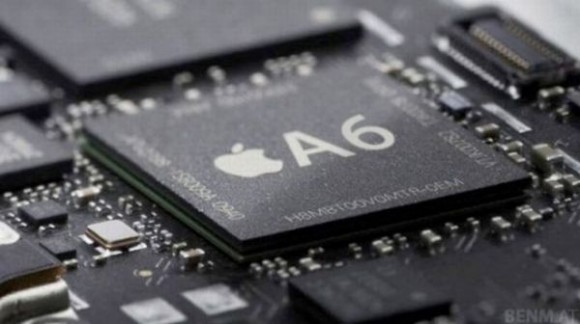Taiwan Semiconductor Manufacturing Company (TSMC), the world’s leading independent semiconductor foundry, is reportedly finalizing production designs for Apple’s in-house engineered A7 processor expected to power a 2014 wave of iPhone, iPad and iPod upgrades. If a new supply chain report is anything to go by, the chip will be fabbed on TSMC’s 20-nanometer process technology, reportedly moving into risk production in May-June, with volume shipments expected in the first quarter of 2014.
TSMC has long been speculated to enter Apple’s supply chain and become a manufacturer of the engine which powers iDevices. So far, Apple has fabbed all of its iDevice chips at Samsung’s plant in Austin, Texas. This is the first time TSMC has been reported as actually prepping to manufacture Apple’s next-gen A-series chip. Earlier this week, we heard that in addition to TSMC, Samsung and Intel are also vying for Apple chip contracts…
This one comes via the somewhat accurate Asian trade publication DigiTimes so proceed with caution:
TSMC is expected to tape out Apple’s A7 processor on a 20nm process in March and then move the chip into risk production in May-June, which will pave the way for commercial shipments in the first quarter of 2014, according to industry sources.
The story mentions that TSMC is currently expanding the production facilities at 14-fab at Taiwan’s Tainan Science Park. The investment is pegged at around NT$500 billion, or approximately a whopping $16.87 billion. The sources claim TSMC will utilize this fabbing facility to manufacture A7 chips for Apple on its 20-nanometer process technology.
The DigiTimes report echoes a November 2012 story by Chinese Economic News Service which claimed TSMC was gearing up to produce quad-core A7 chips for Apple around early 2014.
Now, TSMC did achieve certification on its 20-nm process back in December 2012, but former TSMC director and Silicon-IP founder Kurt Wolf tells MacRumors that “a significant amount of work remains before production-worthy chips will be ready.”
He also speculates the next iPhone and iPad scheduled for release this year could contain smaller and more efficient versions of the existing A6 family based on the 28-nm process rather than the current 32-nm process.
In his mind, Apple could also use “a more substantially modified A6 to boost power, or a new A7 chip built on the 28-nm process before being moved to 20-nm next year”. Apple is likely to tap both Samsung and TSMC for the A7 production, he thinks.
Using more precise fabbing technologies lets chip vendors reduce the size of the transistors and other on-chip components. The smaller the components, the shorter the distance the electrons have to travel, making the chips faster and more power efficient.
For example, we heard yesterday that in a bid to shrink the A5 chip inside a retooled Apple TV, engineers at Apple actually removed one of the two CPU cores and rearranged the chip’s layout.
Previously, the company shipped Apple TV processors with one CPU core intentionally disabled (the set-top box has always been rated as a single-core device).

